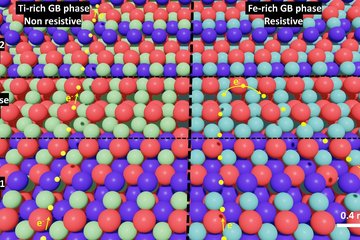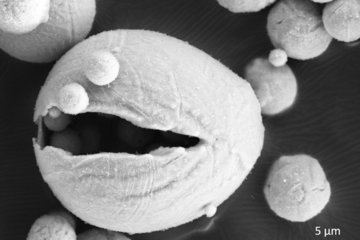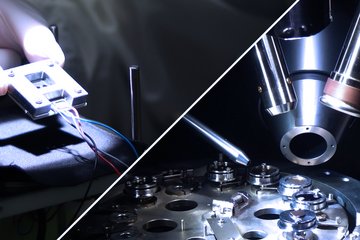All genres
1.
Talk
Ab initio studies of nano-precipitation and growth in ferritic steels. DPG Frühjahrstagung 2010, Regensburg, Germany (2010)
2.
Talk
Kinetic Monte Carlo simulations and ab initio studies of nano-precipitation in ferritic steels. Computational Materials Science on Complex Energy Landscapes Workshop, Imst, Austria (2010)
3.
Poster
First-Principles Investigations of ODS Steels. Ab initio Description of Iron and Steel: Thermodynamics and Kinetics, Tegernsee, Germany (2012)
4.
Poster
Ab initio study of nano-precipitate nucleation and growth in ferritic steels. Psi-k/CECAM/CCP9 Biennial Graduate School in Electronic-Structure Methods, Oxford, UK (2011)
5.
Poster
Ab initio study of nano-precipitate nucleation and growth in ferritic steels. Materials Discovery by Scale-Bridging High-Throughput Experimentation and Modelling, Ruhr-Universität Bochum, Bochum, Germany (2010)
6.
Poster
Ab initio and kinetic Monte-Carlo study of nano-precipitate nucleation and growth in ferritic steels. Materials Discovery by Scale-Bridging High-Throughput Experimentation and Modelling, Bochum, Germany (2010)
7.
Poster
Kinetic Monte Carlo and ab initio study of nano-precipitates and growth in ferritic steels. Ab Initio Description of Iron and Steel: Mechanical Properties, Tegernsee, Germany (2010)
8.
Poster
Combined ab initio studies and kinetic Monte Carlo simulations of nano-precipitation in ferritic steels. Summer School: Computational Materials Science, San Sebastian, Spain (2010)
9.
Thesis - Master
Chemical Trends in the Yttrium-Oxide Precipitates in Oxide Dispersion Strengthened Steels: A First-Principles Investigation. Master, Ruhr-Universität Bochum, Bochum, Germany (2012)
10.
Thesis - Bachelor
Combined Ab Initio and Kinetic Monte-Carlo Studies on Nano-Precipitates in Steels. Bachelor, Ruhr-Universität, Bochum, Germany (2010)











